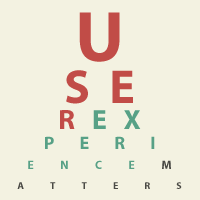
Recently I had a very interested experience at the eye doctor. I wear contacts, so I have to go in once a year to get a new prescription just so they can continue to sell me the exact same product (*not bitter*). I went the other day to get said yearly checkup...
The interesting thing about my visit was when the first lady - let's call her Jan - gave me that test where they make you read decreasingly smaller rows of text on a paper. You know, the one with a ginormous "E" at the top?
Well I was making my way down the rows, which she was able to selectively reveal with her machine, and when she got to the row which was about the smallest on the chart, she said, "How about that one?"
I said, "Yeah, I can read that."
"Okay...you can? Well go ahead..."
I stopped her and I said what I was thinking: "I don't understand why I should have to read something that is so small that I would need a microscope to read it in real life? I never read or look at any text that is that small."
Jan said, "Well this is to check your 20/20 vision. This simulates text that is 20 feet away."
To which I naturally replied, "Well any text that is that small at 20 feet away is not intended to be read by me."
Jan became noticeably frustrated and I take it she thought I was just trying to give her a hard time. She said, "You're missing the point. But let's just move on."
I felt a little bad that I had frustrated this nice woman who was just doing her job - the same thing she does with every patient. And yet here comes one smart-face guy who decides to be different...
But in all honesty, I hadn't decided ahead of time that I was going to just be different, or try to be stubborn with my eye doctors that day. And that's when I realized, I had decided ahead of time that I'm not going to do something I don't think I need to do, or that is unusually difficult to do.
This is exactly what users of any product or service do all the time. In fact, it's just human nature. We decide that if something is too difficult, we're just not going to do it, or use it. Of course in this instance my background as a graphic and interface designer and my experience with web usability probably shaped my responses to this otherwise rationale request by an eye doctor's assistant.
But from my perspective, I just felt that it was irrational to ask anybody to read something that is simply too small to read. Isn't that why graphic designers and web designers exist? (Not to make life hard for optometrists, but to make life more rational and easier for users of such things as visual displays.)
The profound moment in all of this is that point that people simply won't do or use things that are just unnecessarily difficult to use or do. That is why user testing is so important. That's why as web designers, when we think we've answered all of the questions for our users it is critical that we actually go and test users to see if we have in fact solved all of the challenges to using our website or product. And that's why it's critical that we observe the users when they decide not to use something.
Because chances are if they didn't use it, it was probably just to difficult to use.
